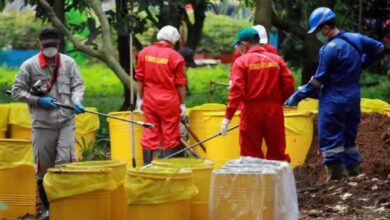MoSA unveils new leadership and reforms for cooperative sector oversight
During natural or man-made calamities Kuwait’s cooperatives sector has stood the test of time as the nation’s primary safety valve for food security, reinforcing the importance of this reform initiative as a cornerstone of national resilience.

In conjunction with the Civil Service Bureau’s approval of the Ministry of Social Affairs’ new administrative structure—now officially in effect—Minister of Social Affairs, Family, and Childhood Affairs Dr. Amthal Al-Huwailah has issued key ministerial decisions appointing new leadership in line with the restructured framework.
In conjunction with the nod given by the Civil Service Commission, the new administrative structure of the Ministry of Social Affairs now officially in effect, Minister Dr. Amthal Al-Huwailah has issued key ministerial decisions appointing new leadership in line with the restructured framework.
As part of the changes, Dr. Khaled Al-Ajmi has been trusted with the role of Assistant Undersecretary for Social Care and Development Sector Affairs, while Dr. Sayed Issa has been assigned the powers and responsibilities of the Assistant Undersecretary for Financial, Administrative, and Cooperative Affairs.
Both officials have commenced their duties by setting strategic development plans for their respective sectors, aiming to avoid past shortcomings and ensure effective implementation of goals.
Immediately following his appointment, Dr. Issa held a high-level meeting with department directors and supervisors to establish a comprehensive work plan for the cooperative sector.
The plan emphasizes digital transformation and the adoption of a “smart monitoring” system across all aspects of the cooperative network. This approach is designed to strengthen transparency, enforce governance standards, and enhance the role of field inspection teams in overseeing daily operations within central markets and cooperative branches.
One key component of the reform plan is the deployment of a group of ministry employees as “secret observers” to conduct covert field visits. These observers will assess the actual performance of cooperatives on the ground—free from embellishment or interference—thereby ensuring objective evaluations and revealing any hidden deficiencies not captured in formal reports.
According to ministry sources, Minister Al-Huwailah has granted Dr. Issa full authority to correct existing flaws in cooperative operations and push for full compliance with the law. The cooperatives, which collectively represent a multi-billion-dinar sector and are central to securing Kuwait’s food and commodity reserves, are now under intense scrutiny as part of this revitalization initiative.
The ministry is committed to complete transparency through public disclosure of cooperative data and activities, empowering citizens and shareholders to become active participants in oversight. Mechanisms are also being put in place to make it easier for the public to report violations.
Sources affirmed that this reform plan includes strict accountability measures for anyone who misuses cooperative resources, tampers with the strategic commodity stockpile, or attempts to deviate from the ministry’s policy framework.
These efforts align with the Ministry’s earlier announcement regarding a forthcoming law to regulate cooperative work more effectively and address long-standing challenges. The new law is expected to safeguard the cooperative model and ensure the uninterrupted flow of goods—especially during crises.
Whether during the COVID-19 pandemic or recent regional conflicts, Kuwait’s cooperatives sector has proven to be the nation’s primary safety valve for food security, reinforcing the importance of this reform initiative as a cornerstone of national resilience.


















